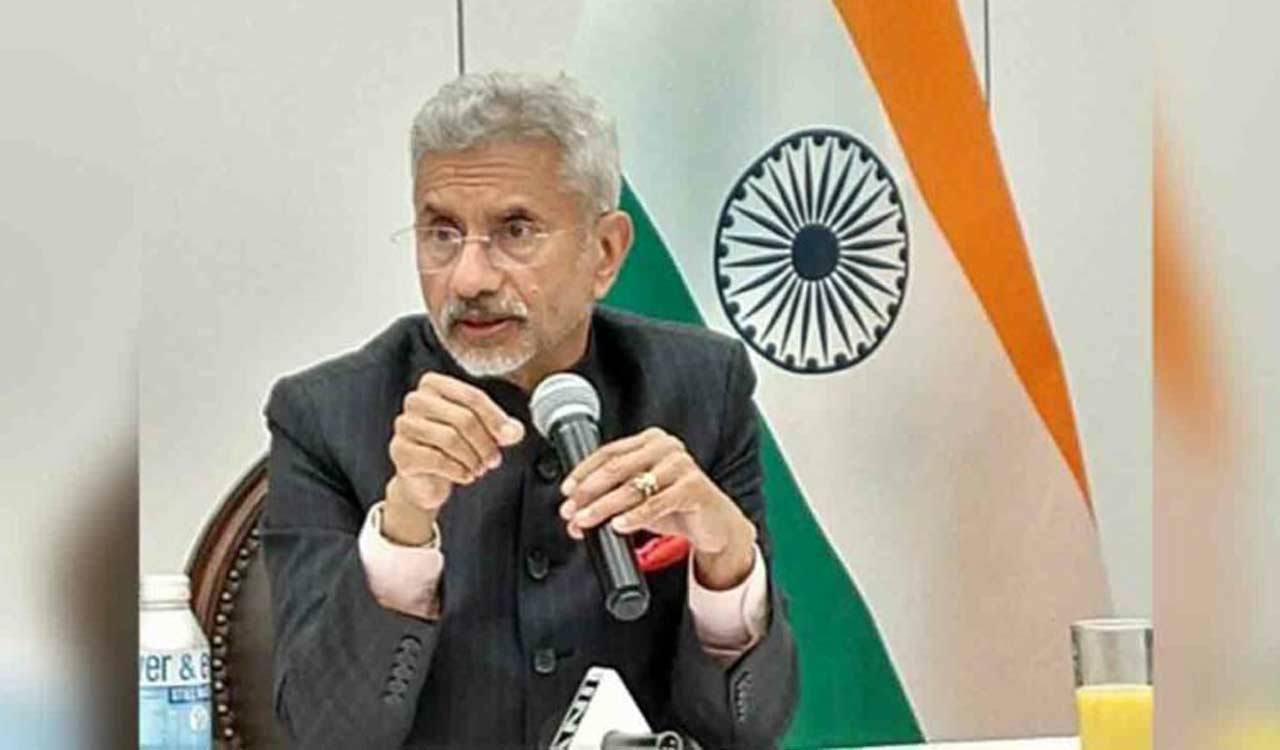
S Jaishankar was struck by how little people in the US, specially officials he met over the last days knew about Canada's permissive attitude towards terrorism,
Updated On - 11:16 PM, Sat - 30 September 23
Washington: External Affairs Minister S Jaishankar was struck by how little people in the US, specially officials he met over the last days including Secretary of State Antony Blinken and National Security Adviser Jake Sullivan, knew about Canada’s permissive attitude towards terrorism and the thriving nexus of crime, extremism, and human trafficking that exists in that country.
This lack of awareness, the minister said “is a part of the problem”.
It was important, therefore, for him to present to them the “accurate picture” and “our point of view” so that the ongoing debate is not confined to just one or two issues but “the bigger picture which has been going on for some time, and it’s a very serious picture”.
“A lot of Americans are astonished,” the minister told reporters on Friday, unlike Indians who won’t be surprised if told there are people in Canada “who are advocating violence or advocating separatism; there is a history out there”.
“I suspect very few American know this,” he went on to say, and added: “So, in a way, a lot of what I said at the meetings, I think, was new to the Americans.”
At an event at Hudson Institute, a think tank, Jaishankar first raised this difference in the way Americans look at Canada and how Indians look at Canada.
“When Americans look at Canada they see something; when we in India look at Canada we see something else.
“And that’s part of the problem,” the minister said, in a thinly veiled criticism of American officials who have been calling on India to cooperate in Canada’s investigation into allegations by Canada’s Prime Minister Justin Trudeau that India was behind the killing of Hardeep Singh Nijjar, a Khalistani activist, in June.
White House and state department officials have expressed “deep concern” over Trudeau’s allegations and have said they support the investigation and want India to cooperate.
In fact, according to reports, it’s the US that provided key information to the Canadians about alleged India links to the killing as part of the Five Eyes intelligence sharing agreement that the two countries have with the UK, Australia, and New Zealand.
Jaishankar said it did not come up in the meetings. “It’s important that we, you know, talk it out with the Americans. After all, they are very close to Canada, they are good friends of ours,” the minister said about why he brought up the larger context for his American interlocutors.
“It’s important that they also have an accurate picture, that they have our point of view on this matter as well.”
This is a conversation that should continue with focus on all issues. “I’m not prejudging issues. I’m not taking absolutist positions,” the minister said. “What we have taken is a very reasonable stance. It should not be that the entire debate focuses on issue one, issue two, and the bigger picture which has been going on for some time, and it’s a very serious picture.”
To underscore the seriousness of issues at hand, Jaishankar brought up threats faced by Indian missions. “When was the last time that any of our missions was intimidated to a point where it could not continue with its normal functioning? And if someone says this could happen in a G7 country, in the Commonwealth countries it gives you a lot to think about.”





Leave a Reply